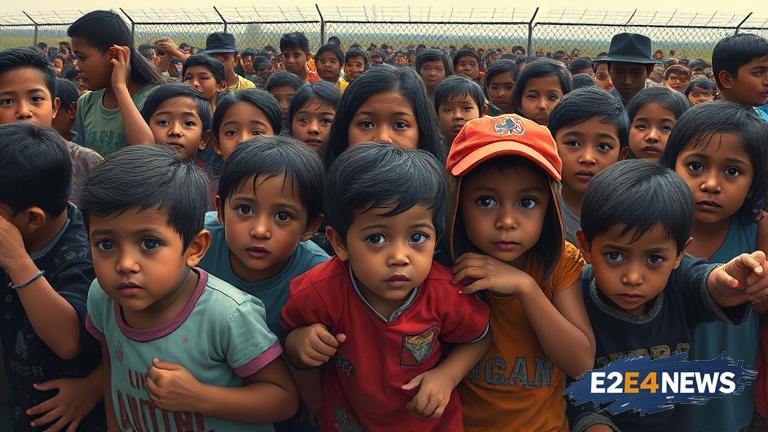The United States government’s immigration policy has come under intense scrutiny in recent weeks, as thousands of migrant children have been separated from their parents at the border. The ‘zero tolerance’ policy, introduced by the Trump administration, aims to deter illegal immigration by prosecuting all adults who cross the border without authorization. However, the policy has been widely criticized for its harsh treatment of migrant families, with many children being taken from their parents and placed in detention centers. The separations have sparked outrage and protests across the country, with many calling for an end to the policy. The issue has also drawn international attention, with the United Nations and other human rights organizations condemning the practice. According to reports, over 2,000 children have been separated from their parents since the policy was introduced in April. The children are being held in detention centers, often in poor conditions, while their parents are being prosecuted and potentially deported. Many of the children are under the age of 10, and some are as young as 4 months old. The separations have been described as traumatic for both the children and their parents, with many experiencing anxiety, depression, and other mental health issues. The policy has also been criticized for its lack of clarity and consistency, with many families being separated without being given any information about where their children are being taken. The Trump administration has defended the policy, arguing that it is necessary to prevent illegal immigration and to protect national security. However, many experts and advocates argue that the policy is inhumane and ineffective, and that it will only serve to drive more migrants into the shadows. The issue has also highlighted the need for comprehensive immigration reform, with many calling for a more humane and efficient system for processing asylum claims and providing support to migrant families. As the debate continues, the fate of thousands of migrant children remains uncertain, with many facing an uncertain future in detention centers or foster care. The US government has announced plans to reunite some of the separated families, but the process is expected to be slow and difficult. In the meantime, the separations continue, with many more children being taken from their parents every day. The issue has sparked a national outcry, with many Americans expressing outrage and disgust at the treatment of migrant families. The US government’s immigration policy has been widely criticized, with many arguing that it is a stain on the country’s reputation as a beacon of hope and freedom. As the world watches, the US government must consider the long-term consequences of its actions and work towards a more humane and compassionate solution to the immigration crisis. The separations have also raised concerns about the potential long-term effects on the children, who may experience lasting trauma and psychological damage. Furthermore, the policy has been criticized for its potential to drive more migrants into the hands of human traffickers and smugglers, who prey on vulnerable families and individuals. The US government must take immediate action to address the crisis and provide support to migrant families, rather than pursuing policies that only serve to exacerbate the problem. Ultimately, the US government’s immigration policy must be guided by a commitment to human rights and dignity, rather than a desire to punish and deter. By working towards a more humane and compassionate solution, the US government can restore its reputation as a leader in human rights and provide a safer and more welcoming environment for migrant families.





